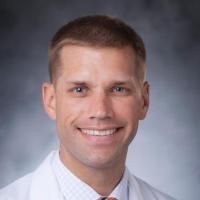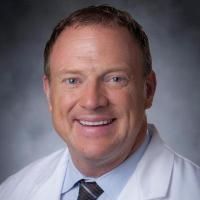American Society for Enhanced Recovery and Perioperative Quality Initiative Joint Consensus Statement on Patient-Reported Outcomes in an Enhanced Recovery Pathway.
Date
2018-06
Journal Title
Journal ISSN
Volume Title
Repository Usage Stats
views
downloads
Citation Stats
Attention Stats
Abstract
Patient-reported outcomes (PROs) are measures of health status that come directly from the patient. PROs are an underutilized tool in the perioperative setting. Enhanced recovery pathways (ERPs) have primarily focused on traditional measures of health care quality such as complications and hospital length of stay. These measures do not capture postdischarge outcomes that are meaningful to patients such as function or freedom from disability. PROs can be used to facilitate shared decisions between patients and providers before surgery and establish benchmark recovery goals after surgery. PROs can also be utilized in quality improvement initiatives and clinical research studies. An expert panel, the Perioperative Quality Initiative (POQI) workgroup, conducted an extensive literature review to determine best practices for the incorporation of PROs in an ERP. This international group of experienced clinicians from North America and Europe met at Stony Brook, NY, on December 2-3, 2016, to review the evidence supporting the use of PROs in the context of surgical recovery. A modified Delphi method was used to capture the collective expertise of a diverse group to answer clinical questions. During 3 plenary sessions, the POQI PRO subgroup presented clinical questions based on a literature review, presented evidenced-based answers to those questions, and developed recommendations which represented a consensus opinion regarding the use of PROs in the context of an ERP. The POQI workgroup identified key criteria to evaluate patient-reported outcome measures (PROMs) for their incorporation in an ERP. The POQI workgroup agreed on the following recommendations: (1) PROMs in the perioperative setting should be collected in the framework of physical, mental, and social domains. (2) These data should be collected preoperatively at baseline, during the immediate postoperative time period, and after hospital discharge. (3) In the immediate postoperative setting, we recommend using the Quality of Recovery-15 score. After discharge at 30 and 90 days, we recommend the use of the World Health Organization Disability Assessment Scale 2.0, or a tailored use of the Patient-Reported Outcomes Measurement Information System. (4) Future study that consistently applies PROMs in an ERP will define the role these measures will have evaluating quality and guiding clinical care. Consensus guidelines regarding the incorporation of PRO measures in an ERP were created by the POQI workgroup. The inclusion of PROMs with traditional measures of health care quality after surgery provides an opportunity to improve clinical care.
Type
Department
Description
Provenance
Subjects
Citation
Permalink
Published Version (Please cite this version)
Publication Info
Abola, Ramon E, Elliott Bennett-Guerrero, Michael L Kent, Liane S Feldman, Julio F Fiore, Andrew D Shaw, Julie KM Thacker, Tong J Gan, et al. (2018). American Society for Enhanced Recovery and Perioperative Quality Initiative Joint Consensus Statement on Patient-Reported Outcomes in an Enhanced Recovery Pathway. Anesthesia and analgesia, 126(6). pp. 1874–1882. 10.1213/ane.0000000000002758 Retrieved from https://hdl.handle.net/10161/17248.
This is constructed from limited available data and may be imprecise. To cite this article, please review & use the official citation provided by the journal.
Collections
Scholars@Duke

Michael Lewis Kent

Julie K. Marosky Thacker

Timothy Ellis Miller
Clinical and research interests are Enhanced Recovery and Perioperative Medicine; with particular interests in fluid management, and perioperative optimization of the high-risk non-cardiac surgery patient.

Paul Edmund Wischmeyer
Paul Wischmeyer M.D., EDIC, FASPEN, FCCM is a nutrition, exercise, critical care, and perioperative physician-researcher who specializes in enhancing preparation and recovery from surgery, critical care and COVID-19. He serves as a Tenured Professor of Anesthesiology and Surgery at Duke. He also serves as the Associate Vice Chair for Clinical Research in the Dept. of Anesthesiology and Director of the TPN/Nutrition Team at Duke. Dr. Wischmeyer earned his medical degree with honors at The University of Chicago Pritzker School of Medicine, where he was elected into the honor society of Alpha Omega Alpha for outstanding academic achievement. He completed his pediatric internship at University of Colorado Children’s Hospital and his anesthesiology/critical care residency training at the University of Chicago. He also completed a Clinical Pharmacology fellowship and the NIH K30 Clinical Research Scientist Training Program while at University of Chicago.
Dr. Wischmeyer’s clinical and research focus is in critical care, perioperative care exercise, and nutrition to help patients prepare and recover from illness and surgery. His research interests include surgical and ICU nutrition and exercise rehabilitation; role of parenteral, enteral, and oral nutrition to improve patient outcomes; perioperative optimization; post-illness muscle mass and functional recovery; and probiotics/microbiome. His research interests have also recently been focused on COVID-19 research into COVID-19 metabolism, role of probiotics in COVID19 prevention and treatment, and exercise and nutrition programs to recover from COVID-19 and Long COVID-19. Dr. Wischmeyer’s research group has been awarded multiple NIH, DOD, and other peer reviewed grants to perform research ranging from basic mechanistic cell work to large-scale multi-center clinical trials in the fields of critical care, perioperative medicine, nutrition, illness metabolism, microbiome/probiotics, and exercise interventions to improve functional outcomes. For his research work and clinical work, Dr. Wischmeyer has received numerous awards from national and international societies including, The Jeffrey Silverstein Award and Memorial Lecture for Humanism in Medicine from the American Delirium Society, The John M. Kinney Award for the most significant contribution to field of general nutrition, the Stanley Dudrick Research Scholar Award by the American Society for Parenteral and Enteral Nutrition and The Lifetime Achievement Award of the International Parenteral Nutrition Society (IPENEMA) for significant contributions to the field of nutrition. Dr. Wischmeyer has over 200 peer-reviewed publications in critical care, anesthesiology, and nutrition, including in the New England Journal of Medicine. Finally, he has been an invited speaker at numerous national and international medical meetings delivering over 900 invited presentations over his career. He has an H-index of 73 with over 16,500 citations to his work, including 1 publication with > 1000 citations and 55 publications with > 100 citations. He is also the founder and director of the Duke Online Clinical Nutrition Fellowship, an international fellowship to provide clinical nutrition training to healthcare providers worldwide, as well as unique scholarship opportunities for healthcare providers in developing nations.
Dr. Wischmeyer passion for helping patients recover from illness and surgery arises from his personal experiences as both doctor and patient in the ICU. Dr. Wischmeyer has undergone over 27 major surgeries and personally experienced multiple ICU stays due to a childhood GI illness that took more than half of his intestinal tract. Thus, preparation for surgery/critical care and recovery from illness are a way of life for Dr. Wischmeyer that he is passionate about teaching his patients and other caregivers worldwide.
Unless otherwise indicated, scholarly articles published by Duke faculty members are made available here with a CC-BY-NC (Creative Commons Attribution Non-Commercial) license, as enabled by the Duke Open Access Policy. If you wish to use the materials in ways not already permitted under CC-BY-NC, please consult the copyright owner. Other materials are made available here through the author’s grant of a non-exclusive license to make their work openly accessible.
